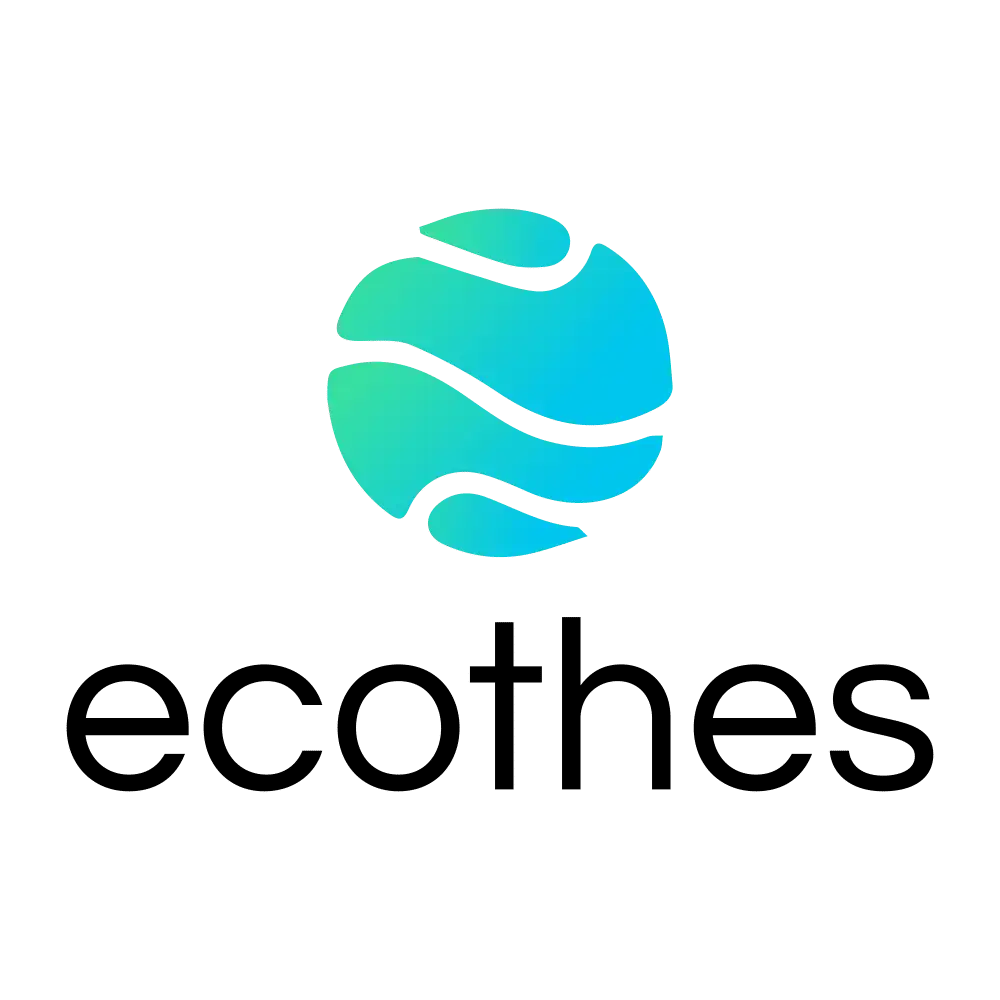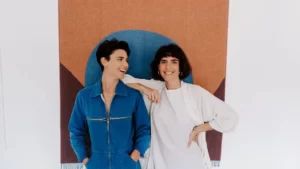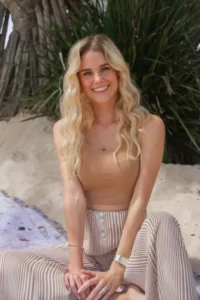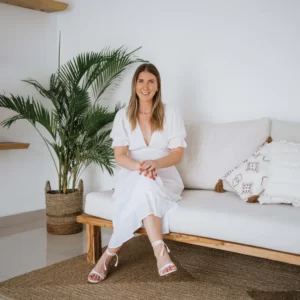In Today’s sustainable founder Q&A series, we catch up with Vizan Giri, co-founder of Terra Thread, to discuss how the brand is leading the way for social and environmental justice in the fashion industry.
Hello! Can you tell us a little bit about yourself and the brand you run?
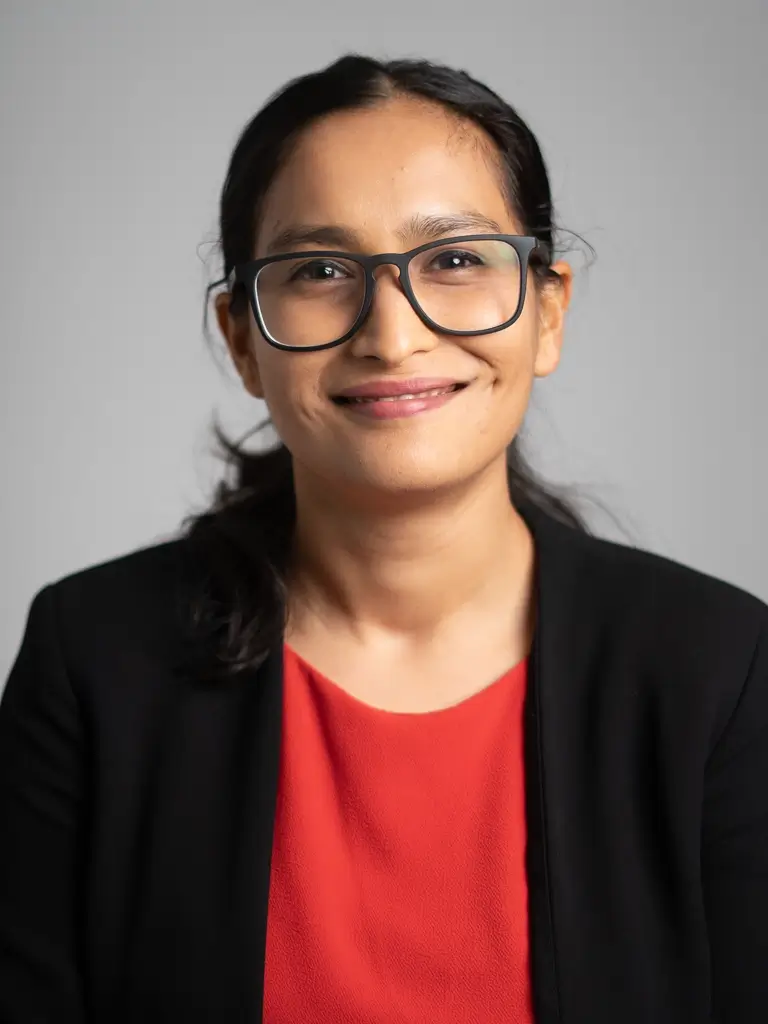
I am Vizan Giri, co-founder of Terra Thread. Terra Thread is a sustainable bag and apparel brand with a mission to lead a transformation in organic cotton farming, and give consumers better, more planet-friendly choices for everyday essentials.
Terra Thread backpacks and bags are created for conscious consumers, corporations and NGOs who are looking to make a positive impact on the world with their purchase. Terra Thread puts people and the planet first, every step of the way from organic farms to your arms.
Why did you start your company? What inspired you?
My father, Vik Giri, and I started Terra Thread. Throughout college, I worked at my father’s company, Gallant International, a certified B Corp that supplies businesses with sustainable promotional and retail products. Between Gallant’s business practices and trips to visit partners in India, I saw what it means for a company to take responsibility for their supply chains, as well as the growing demand for – and the need for – ethical products.

Something that stood out to me is that the backpacks and accessories space was full of polyester-based products which rely on oil.
I wanted to produce something different, that gave more business to organic cotton, and helped us move away from oil-based materials.
With our passion for social and environmental justice, coupled with the realization that there was an almost total lack of sustainably-produced backpacks and bags on the market, we were inspired to create a product that could have a long-lasting positive impact on the planet.
Why have you chosen the materials you work with?
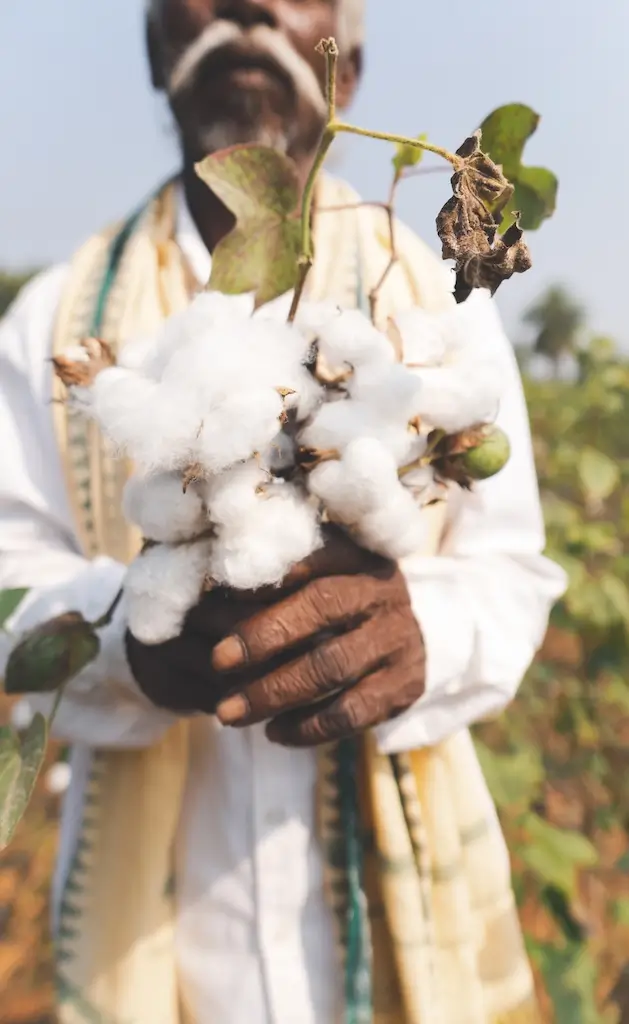
The United States Department of Agriculture (USDA) estimates that cotton averages about 25 percent of the total fiber used worldwide, making it one of the most important textile fibers in the world. It fills our homes and our wardrobes: our clothes, furniture, bedding, and so many small accessories are made of cotton.
However, the environmental impact of conventional cotton is huge: in places like Central Asia, we’ve seen the Aral Sea deplete down to 10% of its original volume, due to cotton production. According to Fairtrade International, around 100 million rural households are engaged in cotton production in more than 75 countries around the globe. Yet how are they benefiting from this production of cotton? Many farmers often turn to Genetically Modified Seeds (GMOs), in hopes of increasing yields — though that comes with its own challenges of having to buy seeds every year, and then the exposure to chemicals in growing those seeds into plants.
This is why we have chosen to make our products from ORGANIC and FAIRTRADE cotton grown by family farmers in India. The organic cotton used in our products is grown without using GMOs, and harmful and toxic inputs such as fertilizers, herbicides, and pesticides. It means a healthy life for farmers, workers and consumers as they are not exposed to toxicity and runoff, which also contaminates food systems and waterways.
All our products are made at a Fair Trade CertifiedTM facility. The Fair Trade Certification ensures that all workers receive:
- Legal wages and benefits.
- Improved livelihoods.
- Safe and healthy workplaces.
- Gender equality.
- Women’s rights.
- A responsible workplace throughout the entire supply chain
What elements of your brand are important to you which illustrate your brand values and culture?
Demand for cotton is high, and fast fashion brands play a major role in this demand, but the farmers are the ones who experience the pressure of that demand and turn to GM seeds and pesticides. Particularly in India, where we source all our organic cotton from, we have seen that conventional growers face increased debts (pesticides and GMO seeds each season are not cheap) and some have even faced total economic ruin.
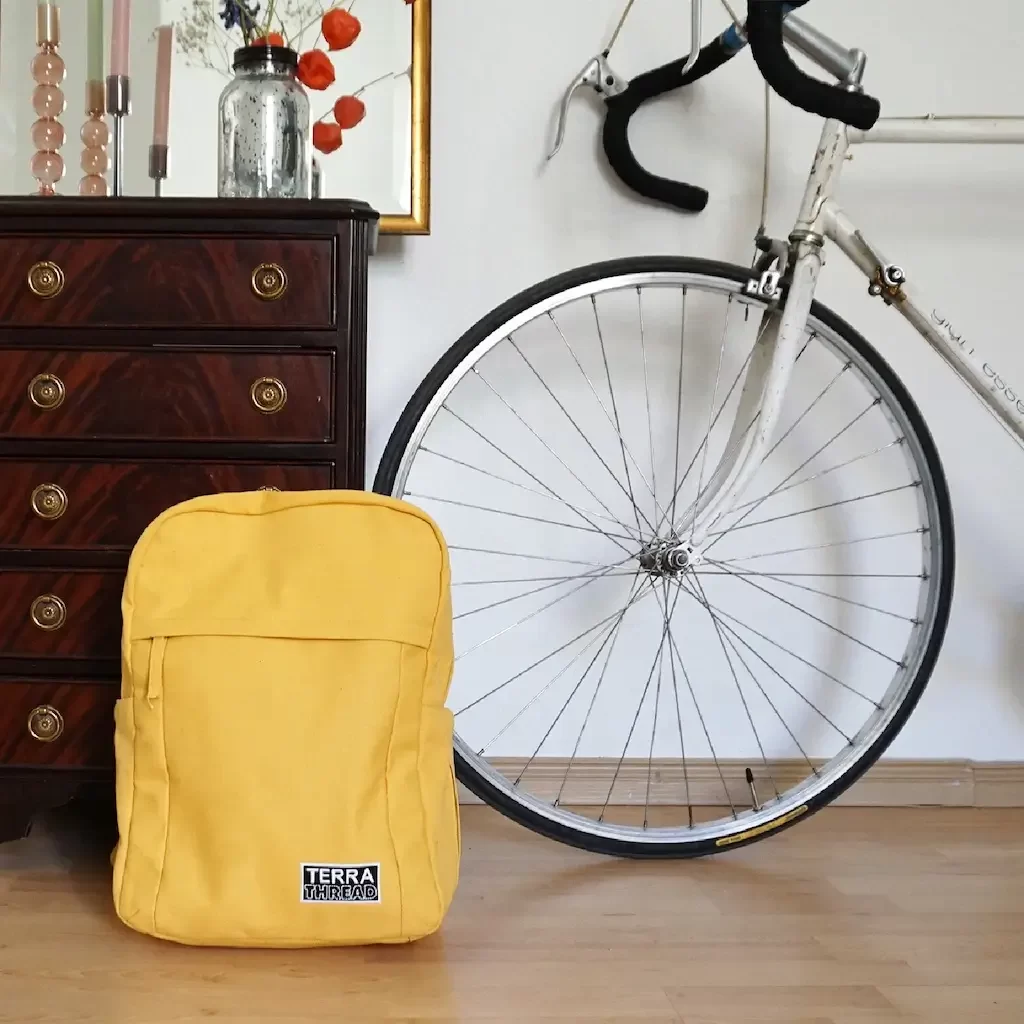
All this gets hidden from consumers in today’s fast fashion world- intentionally or not. Farmers are forgotten in the web of supply chains but are often doing the most important work. They also play a crucial role in solving the climate crisis.
Soil and farmers are at the forefront of our business. We want to change the conventional way customers see a product – that there is a story behind it, and it goes all the way back to the farm.
What’s the biggest achievement or milestone of your brand so far?
In Feb 2022, with our parent company Gallant and our factory partners, over 3500 acres of land were successfully transitioned to Regenerative Organic Certified® making it one of the largest ROCTM projects in cotton globally.
We hope this achievement will inspire other brands to join our mission to lead a transformation in organic cotton farming, and give consumers better, more planet-friendly choices for everyday essentials.
How do you ensure your company stays true to your vision as you grow?
In the market, sustainable products are priced higher, making them unaffordable for many. We wanted to offer customers a greener choice at an affordable price. Our products are fairly priced, and we offer free shipping to our customers, no matter their order size.
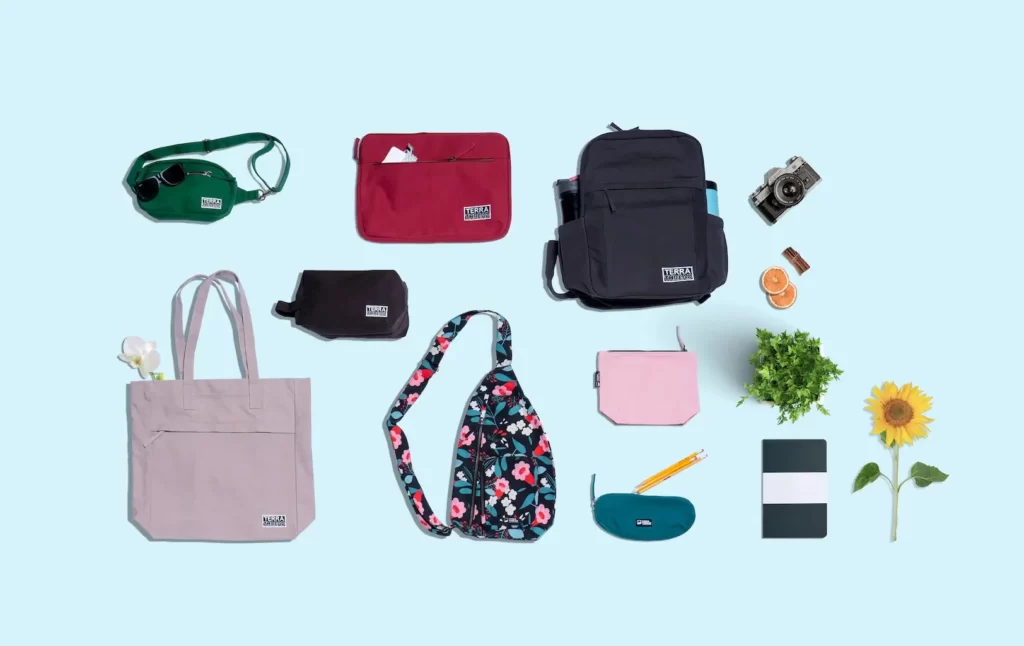
We have been conscious about the new products we bring in and the way we fulfill the orders. We launched our laptop sleeves after customer recommendations. We do not use any unnecessary packaging and have even switched to biodegradable mailers and reusable boxes to ship our products. These are just small steps we take to stay true to our vision.
What do you think are the main challenges around growing your business in the sustainable sector?
It is a slower growth process because we must consider many environmentally and socially sound factors. There’s also the cost issue. Some of these eco-friendlier options are frustratingly more expensive.
For example, we use YKK lead-free metal zippers, which are recyclable, instead of commonly used nylon zippers that are not. This decision increases our cost and delays our preferred timeline.
Do you have any advice for someone who may be interested in starting a sustainable business?
There may be more leg work to start an environmentally and socially conscious business, but the work you will be doing is crucial to the betterment of the future. Patience will be your greatest tool, as being in the sustainable business sector can take time for your brand to grow to where you want it to be.
Why are third-party certifications important?
Third-party certifications encourage brands to be responsible for the claims that they make. It can also be used as a benchmark by brands that want to go beyond the standards set forth by the certification bodies.
Most importantly, these certifications give consumers options for products verified by these standards.
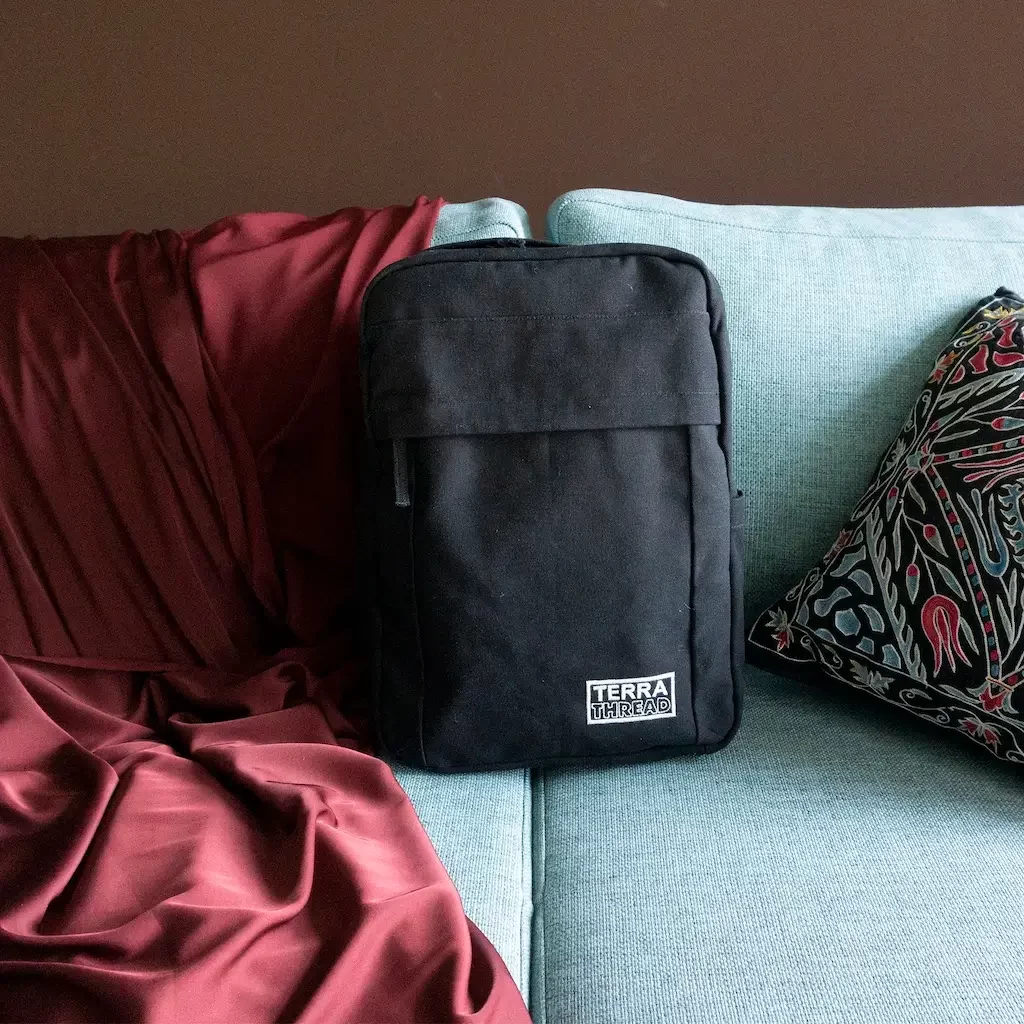
Can you give an example of something you do outside of work that helps you live more sustainably?
Having met the farmers, factory workers and those involved in Terra Thread’s supply chain, I understand the importance of the everyday choices we make as consumers. This is something I consider when I need to make a purchase. I’ve become very thoughtful about what I choose to bring into my home and my wardrobe, because I’m aware of what it takes– on people and the planet.
Have you tried a product from another sustainable/ethical brand that you think our audience should know about?
I recently purchased a pair of trousers from Seasalt Cornwall to replace an old pair. I appreciate what they’re doing: investing in more natural organic materials, shifting their entire supply chain to organic cotton, and being really transparent about the whole process. You can read about all their goals, benchmarks, and new projects in sustainability on their website. Transparency is a big part of the answer, if we’re going to build fairer supply chains.
What does the future look like for your brand?
Every day we strive to do even better, and we constantly have our eyes on ways we can make the brand even more sustainable.
Soon we’d like to run the factory on entirely solar energy. We are looking at investing in fruit trees to support our farmers for them to have additional income. We also want to implement a repair/recycling program for products that experience natural wear and tear over time.
Sustainability is a journey; it’s rarely achieved overnight, so we are in it for the long haul.
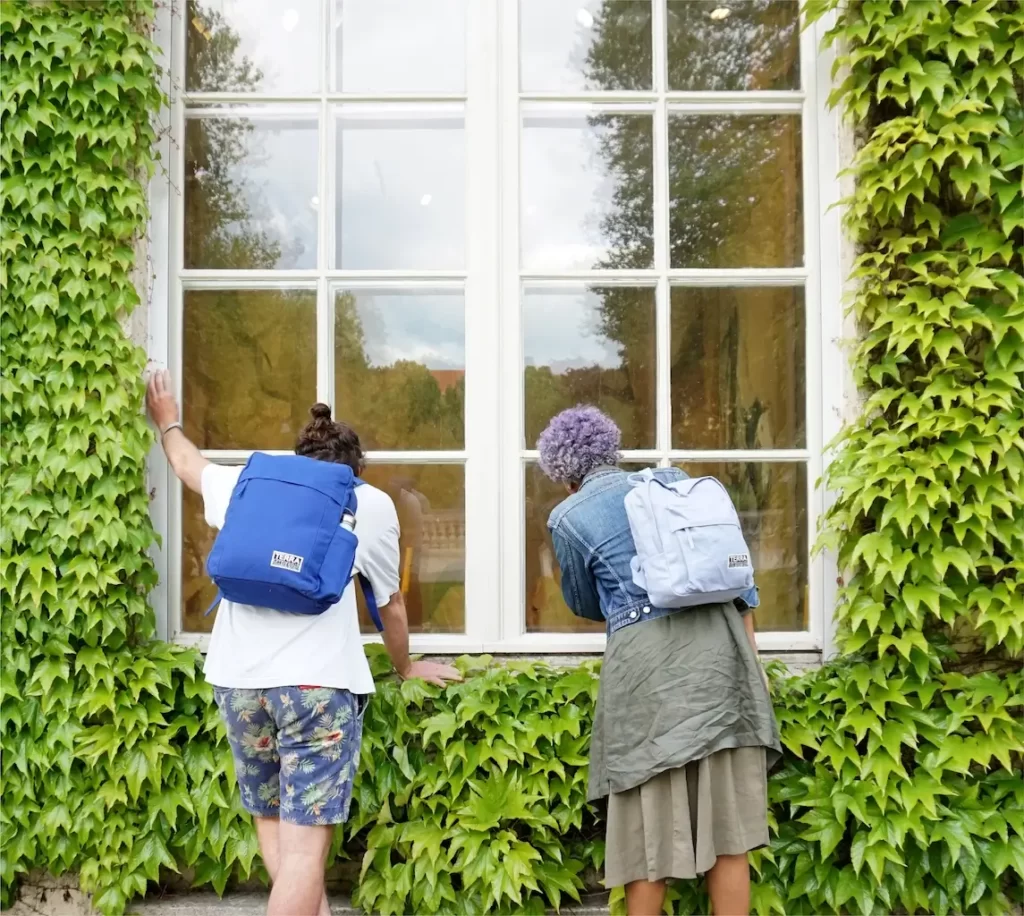
Wrapping Up
Thank you Vizan for taking us behind the scenes of Terra Thread. It’s fantastic to see a brand fully committed to improving social standards, environmental production, and transparency.
